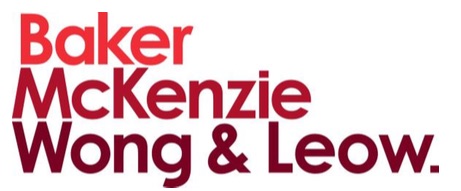24 November 2020
A landmark survey conducted by Baker McKenzie of more than 1500 compliance leaders around the world has revealed major risks associated with digitalization, with 41% of those surveyed admitting their organization has already experienced enforcement investigations by regulators because of technology that was poorly on-boarded and/or implemented. According to this new research The Currency of Connection: Mobilizing Technology for Compliance Integration, investigations are most likely to arise in relation to data privacy and cybersecurity, as well as tax, transfer pricing, fraud and antitrust.
These stark findings come at a time when COVID-19 has significantly accelerated the digital transformation of businesses around the world, which is in turn attracting much greater scrutiny from regulators. In fact, almost two thirds (64%) of compliance leaders predict that scrutiny of tech-enabled business models and data privacy issues will now be top of their regulators' 'to-do lists'. However, 53% of the global respondents also pointed out that lack of consistent guidance on compliance technology from regulators globally is a barrier to further tech adoption.
Singapore respondents ready to invest into new compliance tech of machine learning and AI-enabled solutions
This survey, which was conducted from this past summer, also included 100 respondents from Singapore who were from key economic sectors such as consumer goods, financial institutions, technology, media and telecommunications, energy and infrastructure, industrials, and healthcare and life sciences.
Not surprisingly, 39% of Singapore compliance professionals said they felt the pressure to quickly digitalise as a result of the pandemic. "During the pandemic, we have seen cases of alleged fraudulent activities come to light from high profile insolvencies that were directly connected to the pandemic," said Celeste Ang, principal in the dispute resolution practice.
47% of Singapore respondents also believe that there is value yet to be realised from compliance technology they have purchased. Currently, compliance technology tools are most frequently used for predictive analytics (i.e. identifying new areas of regulation), regulatory alerts and issue tracking tools, followed by document and information management tools (e.g. eDiscovery, eSignatures, eBilling, and contract management).
"The attitude towards compliance remains one of the biggest hurdles for corporations, especially in the current economic climate. Where revenue and growth have been hampered due to a slump in economic activity, there may be a disconnect between the focus on compliance by the legal and compliance team on the one hand, and a focus on growth and profits by the management on the other," added Celeste.
Are companies overlooking compliance needs?
The research reveals that compliance teams, who are often a key line of defence against such investigations, are largely shut out of decision making around new tech, including a third of global respondents surveyed who believe their organization is employing new technology without any regard for potential compliance and regulatory risk at all. For the same data point, 39% of Singapore respondents said that the compliance function has no oversight or were not consulted in the purchase of new compliance technology, and 36% of respondents have admitted that they have faced compliance investigation as a result of poorly implemented business technology.
"Companies may now be more focused on conserving resources, but compliance should not be overlooked. The demand for compliance technology has been on the rise but businesses will need to consider their business position to determine whether they are able to adopt the technology," said Celeste.
43% of Singapore respondents said that they have plans to invest between USD 3 to 5 million in new compliance technology in the next two to three years, with machine learning-enabled solutions, AI-enabled solutions, and document and information management tools being the top three priorities.
The Third Party Challenge
One area where there is increasing concern and scrutiny is related to third party compliance risk, and in particular where a company has a minority interest, a joint venture, or regarding supplier relationships.
"We see clearly that Singapore authorities are vigilant of the increased risk of corruption arising from the impact of COVID-19, particularly in the supply chain and procurement context, where there is a need to address these disruptions through other supply channels," said Celeste.
Technology is therefore being rolled out to support compliance teams implement best practice and manage risk among investment partners. According to the survey, 45% of compliance leaders plan to deploy technology to monitor the actions and behaviors of these third parties. Artificial intelligence (AI) is particularly useful in managing third party risk. It can mine, collate and analyze public source information relating to investment partners to make connections that otherwise may not be made and highlight risks that may otherwise remain hidden. Used in this way, AI can provide greater insight and transparency on investment and procurement decision-making, thereby making it easier to assess potential hotspots.
For further information, please contact:
Celeste Ang, Baker & McKenzie.Wong & Leow
celeste.ang@bakermckenzie.com





